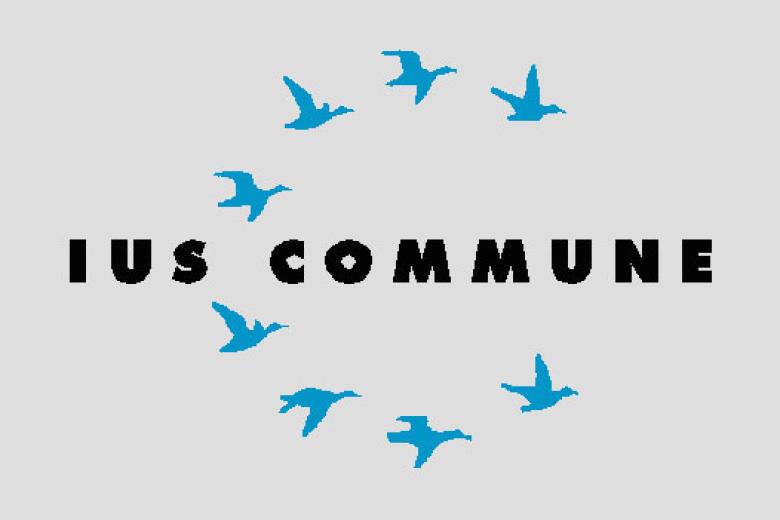The Legal Research and Reasoning Cycle
The scientific study of law–when consisting of the drafting of a research paper–undergoes a series of stages, running a cycle that matures and evolves. Four stages can be identified in that cycle, namely those related to the researching, writing, reasoning, and testing processes. Researchers can slightly move back-and-forth through these stages, yet the cycle is completed in a clockwise direction, starting from the researching stage.
Researching Stage. The results presented in a research paper can help understand changes in legal science. Effective research helps to identify sources that relate to the topic of a research paper. Researchers will need to select the sources that are suitable to answer the questions addressed in their papers, engaging in a selection process, in which sources are deemed relevant (“R”), not relevant (“N/R”), or interesting (“I”). The “R” group includes sources that can be of value for the completion of a specific research paper. The “N/R” group includes sources that may not be of value for that project; while the “I” group comprises sources that are of interest, are not directly connected to that project, but may be examined in more detail once that project is finished. Researchers then need to process the sources, placing them within the different parts of the structural outline of their papers. Different sources will be linked to different parts of the paper. Indeed, applying different sources to different parts will help build the premises of the resulting argument.
Writing Stage. It is hard to determine the best moment to start to write. It could be when researchers start to move in circles around the materials, and searches return the same results over and over again. Writing involves a process of creation, in which researchers need to elaborate an argument that are valid and sound. Research papers require an apparatus of references, in which readers can identify the sources used by authors, being able to test themselves the validity and soundness of the argument by reproducing the experiments of the authors. Hence, effective writing calls for the relevant references to sources. Furthermore, writing is effective as long as it is clear and precise. Researchers have to start to review and edit while the writing is evolving because many times this procedure unveils errors of substance or lack of analysis. Corrections of early typos and usages may also be applied to the rest of the research paper. Ultimately, authors aim to convey a message that reaches their audiences, clearly guiding readers through their line of argumentation.
Reasoning Stage. The writing stage will offer a ground where premises are showcased. Authors will need to analyse the argumentative value of their writings, engaging in change whenever they sense flaws or fallacies. They need to devote their utmost efforts to fully understand their own line of reasoning, playing devil’s advocate and tackling the premises and the resulting argument from different perspectives. Completing an effective reasoning process results in an effective argument. Effectiveness of this process will also help acknowledge limitations in a research paper, many times calling for the need of demarcation by means of statements in the introduction or the conclusion. After all, research papers deal with specific research questions and readers need to be aware of the exact scope of claims.
Testing Stage. The research and reasoning cycle is completed with a process that invites to assess the merits of a research paper. In order to assess, researchers have to make their results available. Here, presenting work in progress and seeking feedback at conferences, workshops, and lecture series can serve that purpose. Seeking feedback from experts can be of value when aiming to test results. The ultimate testing ground is the scientific publication, where the researcher tests the results with the entire community. Researchers should lose the fear of exposing their work, since, after all, everyone writes to be read. Dissemination of results necessarily exposes ideas with the scientific community, embracing dialogue with others. The testing process will help researchers augment awareness on strength and weaknesses, with the potential of demanding that authors re-think the paths followed and their results. Re-thinking will reignite the cycle, calling for a new research project, this time from a more mature and evolved state.
Completing the research and reasoning cycle necessarily leads to the development of legal science. Going through the entire cycle requires that researchers are actively involved in their projects, that they are diligent in their work, that they are patient in awaiting for their results, and that they are willing to engage in teamwork and dialogue. Above all, they have to enjoy the fun of going through the stages of the cycle!
Agustín Parise
A. Parise
Agustín Parise (Buenos Aires, Argentina) is Associate Professor of Law at the Faculty of Law of Maastricht University. He received his degrees of LL.B. (abogado) and LL.D. (doctor en derecho) at Universidad de Buenos Aires (Argentina), where he was Lecturer in Legal History during 2001-2005. He received his degree of LL.M. at Louisiana State University Law Center (USA), where he was Research Associate at the Center of Civil Law Studies during 2006-2010.

-
The Decennial Jubilee of Ius Commune in the Making
On 27 November 2025, the tenth edition of the workshop series on Ius Commune in the Making took place within the 29th Ius Commune Conference organised by the University of Amsterdam. This blog entry reproduces a public address by one of the members of the organising committee of that workshop series...

-
Overriding Mandatory Rules in International Arbitration: Balancing Business Freedom and State Interests
Imagine two companies from different countries enter a business deal. They pick a neutral country’s law to govern their contract and agree to arbitrate any disputes, thinking they can sidestep each other’s national courts. But what if one country’s law absolutely prohibits something in the deal –...

-
What is coercion?
According to classic economic thinking—and to common sense—if two parties agree to a deal, both are made better off, otherwise they would not have agreed. This idea is also reflected in contract law, at least in its basic form, treats consent as the cornerstone of a valid contract. If both sides say...
